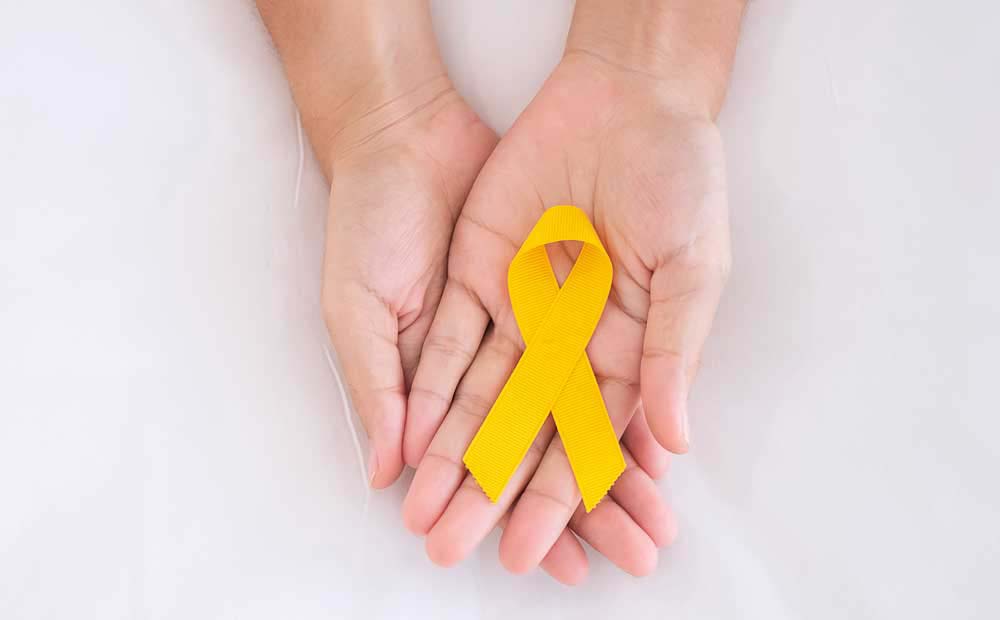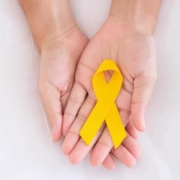
BY COURTNEY PURDY, PSY.D.
September marks Suicide Prevention Month, presenting a crucial opportunity to address stigma, consider difficult conversations, foster resilience, and raise awareness about mental health and suicide prevention resources.
Breaking the Stigma
Struggling with mental health issues often brings feelings of shame, which is the belief that “I am bad.” This shame leads individuals to hide their struggles, further perpetuating the belief that they should not share their experiences. One of the most effective ways to combat shame is to confide in a trusted person. This act of sharing can foster the strength to seek help, illicit empathy, and help individuals realize they are not alone. Talking about mental health struggles helps increase perception of support for most people involved in the conversation.
How to Have Difficult Conversations
Before starting a difficult conversation, it’s essential to self-regulate and consider your approach. Take deep breaths and ground yourself. Define for yourself the goal of the discussion and consider how you want to act or not act to achieve that goal. Discussing your approach with a trusted person beforehand can also help you feel more prepared. Approach the conversation with curiosity, empathy, and validation. Ask for permission to discuss the topic (better to know if the answer is “no” before you start), avoid assuming you know the other person’s feelings or experiences, use open-ended questions, allow silence for reflection, and prioritize expressing understanding before offering solutions. Practice acceptance that this conversation may be the first of many as either of you may need to take a break or take time to process. Additionally, provide reassurance for taking self-care steps and offer practical help in finding mental health resources.
Promoting Resilience
Think of yourself as a houseplant with complex emotions. Just as you would care for a plant, tend to your well-being by taking prescribed medications, following treatment plans from your doctors, eating balanced meals, avoiding drugs and alcohol, practicing good sleep hygiene, and exercising regularly. Your overall wellness also involves social support, lifestyle choices, self-talk, and the content you consume. Align your life with your values, engage in challenging activities for a sense of accomplishment, seek positive experiences, and practice mindfulness. This is a tall order so you may want to consider seeking help (dietician, medical doctor, mental health professional, physical therapy, etc) on whatever areas you think could use improvement on. You do not have to take care of your houseplant all by yourself.
Risk Factors
Suicide is a complex and multifaceted issue, often accompanied by deep emotional and psychological struggles. Risk factors can vary across age, cultural backgrounds, and individual circumstances. Common factors to be aware of include persistent feelings of hopelessness, drastic changes in behavior, withdrawal from social activities, and expressions of self-harm or suicidal thoughts.
Resources
National Suicide Prevention Lifeline
● Phone Number: 988
● Website: https://988lifeline.org
National Crisis Text Line
● Phone Number: Text HOME to 741741
● Website: https://www.crisistextline.org
National Alliance on Mental Illness – Palm Beach County
● Phone Number: 561-833-HELP (561-833-4357)
● Website: https://namipbc.org/crisis-info/
 Courtney Purdy, Psy.D. is a licensed clinical psychologist specializing in Coping Skills, Relationship Issues and Anxiety. Areas of expertise include: Anger Management, Bisexual, Body Positivity, Depression, Family Conflict, Lesbian, LGBTQ+, Life Transitions, Mood Disorders, Peer Relationships, Personality Disorders, Self Esteem, Sleep or Insomnia, Stress, and Women’s Issues. To learn more about Dr. Purdy and to schedule a free 15 minute consultation, click here or call (561) 559-6371.
Courtney Purdy, Psy.D. is a licensed clinical psychologist specializing in Coping Skills, Relationship Issues and Anxiety. Areas of expertise include: Anger Management, Bisexual, Body Positivity, Depression, Family Conflict, Lesbian, LGBTQ+, Life Transitions, Mood Disorders, Peer Relationships, Personality Disorders, Self Esteem, Sleep or Insomnia, Stress, and Women’s Issues. To learn more about Dr. Purdy and to schedule a free 15 minute consultation, click here or call (561) 559-6371.


